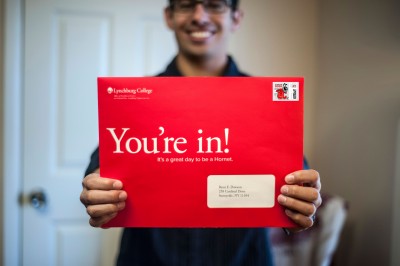|
By David Montesano, Admissions Strategist and Founder of College Match Ah, The Ivy League and Stanford! Despite the fact that current admission rates mean acceptance to one of these schools is the educational equivalent of winning the lottery and that, by definition, there are never enough spaces to go around, many parents demand that their children at least apply to one or more of what I refer to as “super-reach” schools.  Lost in the frenzy over “Ivy Lust” is the fact that focusing first on prestige potentially overlooks the best college matches for candidates. I can vividly remember finding the perfect small, liberal arts college for a student and watching her literally un-tense with relief at the discovery, only to watch her parents balk at the idea and quickly squash it in favor of applying to all the “super-reach” schools. I often wonder how that student’s life might be different if she’d applied to the “right” school versus the “looks right” school. Yes, prestige is great, but when the chances of getting accepted to a prestige school are more like winning the lottery, doesn’t it make sense to hedge one’s bets and look for the “right” school instead—or at least “as well”? The silver lining to increased competition is that the formerly second-tier colleges get more attention. These colleges have always gone about doing their high-quality work in a quiet manner, and are often a valuable asset to those families who recognize their value for students who take advantage of all these schools have to offer. The fact is, even an Ivy league school will disappoint if a student isn’t prepared for collegiate life. There’s a famous sign at my local DMV that says, “If you want a better picture, bring a better face.” The same could be said of colleges: “If you want a better education, bring a better attitude.” In this case, by attitude I mean a willingness to learn, to explore, to participate and to explore all that every college has to offer—not just those with designer or Ivy League prestige. Today, places like Grinnell College and Kenyon are getting much more attention, not to mention the tier of colleges just below these in popularity (places like Whitman and Occidental), where applications have increased to over 6,000 per year for the first time in history. Part of the problem with choosing the “right” school over the “looks right” school is the perception that the only “good” education—and the only good social networks—exist among the Ivies. What is missing in our attitude as parents, as counselors and even as consultants is a more holistic view of America’s entire college and university system—considering what matters first. What makes a prestigious college so great? A lot of it may be hype. Consider famed admission consultant Loren Pope’s perspective in his groundbreaking book, Looking Beyond the Ivy League to Find the College that is Right for You (Penguin, 2007). Loren proves that the smaller liberal arts colleges outperform their Ivy League counterparts when it comes to a variety of skill sets important to both students and their parents, including academics, social networking, social life, and even job placement. If only parents could witness a “blind taste test” pitting the Ivy Leagues or out-of-reach schools versus a variety of both state schools and smaller liberal arts colleges across the same index, no doubt many of them would be surprised just how well the “little Davids” stack up against the Goliaths. Find the College that’s Right for You Clearly, the “let’s apply everywhere and wait to see the best school that accepts us” strategy is the least efficient way of matching your child with the right school for the right future. Too many students see a college application as a “fill in the blank” document with rigid borders clearly designed to help them “fit in” with the rest of the student body. But admission decisions are often made not in how well a student can fit in, but how they stand out. My philosophy is simple: your child should find the school that needs him and let the school know how badly they need him. How? By creating a unique value proposition that makes him a clear standout in relation to the other run-of-the-mill college applications. It’s not about shouting to be heard, but sending a clear and resounding message that can no longer be ignored. That is my goal and it should be the goal of every high school counselor, test prep coach, and college consultant far and wide. At my company, College Match, we use what I call “values matching,” which helps both the applicant and the college “see” the benefits of admitting a particular student—to matching students with colleges based on their life goals. Oftentimes the results are as surprising to the student as they are to his or her parents. Values matching is a new approach that identifies what each student really needs and should get from a college experience, regardless of how “cool” the Ivy League logos look on their sweatshirts. It considers the whole person and determines the right mix of experiences and skills needed, based on “internal” factors such as goals, values rather than external factors such as prestige and popularity. Why Should You Market Yourself? Colleges don’t admit you; they admit your application. Do not take it personally if you don’t get in and conversely don’t take it personally if you do. Having said this, you must do your best to represent who you are in your application. Colleges are selfish; they care more about meeting their own needs than meeting yours. After all, they don’t know you and don’t care about you until you become a student at their school. But up until then, they are more worried about satisfying their own institutional needs. What does a college need? It depends. Some want money. To get this they will admit children of alumni (“legacy”) at higher rates, court donors, admit VIP’s children, and name buildings. Others want intellectual respect and will refuse to admit students with low GPA’s or SAT’s that are below a certain cutoff point. Going through the brand clarification process allows you to find a close to perfect, if not perfect match, that fits your needs with the institution’s. Unfortunately, this is often a one-way street. Colleges have entire departments devoted to branding themselves, yet students and their parents often ignore this critical step. No longer. Going through a four-step process to identify uniqueness, build it into a flame and then gain vision over your life before applying your unique “brand” to your college applications (Spark, Fire, Vision & Brand) will help you define a realistic and authentic identity—or “brand”—for yourself that will not only help you find your dream college but also help your dream college find you. Remember, colleges want what they want; their interest is self-preservation. You have to make them wake up and see your potential by creating a realistic brand that represents your best possible self in order to achieve the best possible fit for your educational goals and the institution’s offerings. This “brand” will help you get into more schools, better schools and, ultimately, the dream school that will provide you with the most satisfactory educational experience you deserve. Think About the Whole Package The good news is, your child already wants to go to a good school. The better news is that what a “good school” means to them is also a “good match” for their educational priorities. In fact, a Princeton Review poll indicates that nearly half of all students’ greatest worry is finding the best match for college. Recent college admission rates show both parents and students are more than a little concerned over getting into the right college. These are valid concerns; grades and test scores matter, but they no longer guarantee admission. More crucial to success is that students demonstrate their value to each college. At College Match, our admission strategists help students appeal to the college of their dreams. We develop key “proof points” that communicate each student’s value through each application to each college. College Match takes a holistic, yet strategic, approach to working with students, working one-on-one with students to discover their unique skills and abilities so that colleges will value each admission application. We have a unique process that implements special tools to highlight the qualities that College Match’s applicants offer. -- David Montesano has more than 20 years of experience as a nationally recognized college admissions strategist. More information about the Montesano Method can be found in his popular college admission guide, Brand U, available here.
0 Comments
Leave a Reply. |
We hope you enjoy this collection of blog entries from our members. Please note that each entry represents the views of its individual author, and may not represent the views of other members or of BATS as a whole.
Categories
All
Archives |

 RSS Feed
RSS Feed